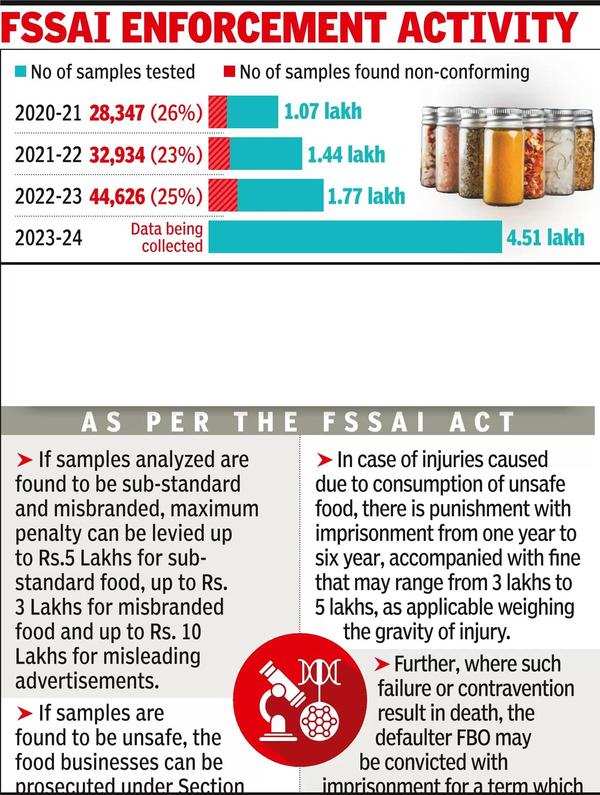NEW DELHI: Food Safety Standards Authority of India has decided to step up
surveillance
this year of
spices
and culinary herbs, fruits and vegetables, salmonella in fish products and fortified rice amid heightened scrutiny of
Indian masala brands
such as MDH and Everest.
The samples will be collected from mandis, malls and mom-and-pop stores across the country as the regulator seeks to enforce better
compliance
of standards.
Some of the product categories have been under watch over the past few years too with spices becoming a major focus area this year in the wake of developments in Singapore and Hong Kong after alleged detection of carcinogenic pesticide
ethylene oxide
(EtO) in some samples. EtO is used by the spice industry to reduce microbial contamination, such as that of E coli and Salmonella.
Another report by Public Eye, a Swiss body, and International Baby Food Action Network (IBFAN) claimed
Nestle India
was adding sugar and honey to infant milk and cereal products sold in countries like India.
Of the samples tested by
FSSAI
between 2020-21 and 2022-23, nearly one out of four
food samples
was found non-confirming. Officials, however, clarified not all samples found to be non-conforming are unsafe. “A sample can be declared non-conforming for various reasons. This includes misbranding where a product and its content aren’t described properly, below the standard product and when products are considered unsafe to consume. Maximum defaulters fall in the first and second category,” a senior FSSAI official said.
Over the years the number of samples picked up has increased from a little under 1.1 lakh in 2020-21 to 4.5 lakh in 2023-24.
According to FSSAI Act, if samples are found sub-standard and misbranded, maximum penalty can be levied up to Rs 5 lakh for sub-standard food, up to Rs 3 lakh for misbranded food and up to Rs 10 lakh for misleading advertisements. “If samples are found unsafe, food businesses can be prosecuted under Section 59 of FSS Act, 2006 where a three-month jail term with penalty up to Rs 3 lakh can be levied where failure does not result in injury,” the official explained.


